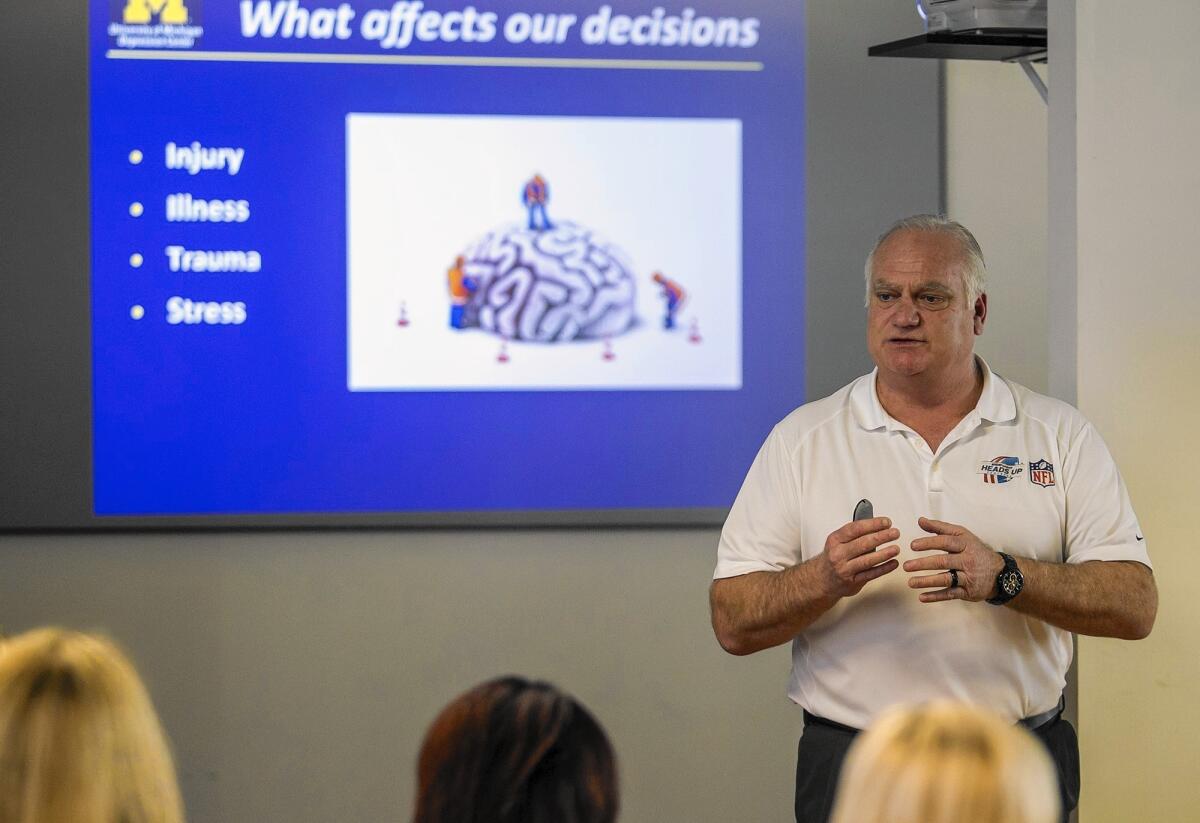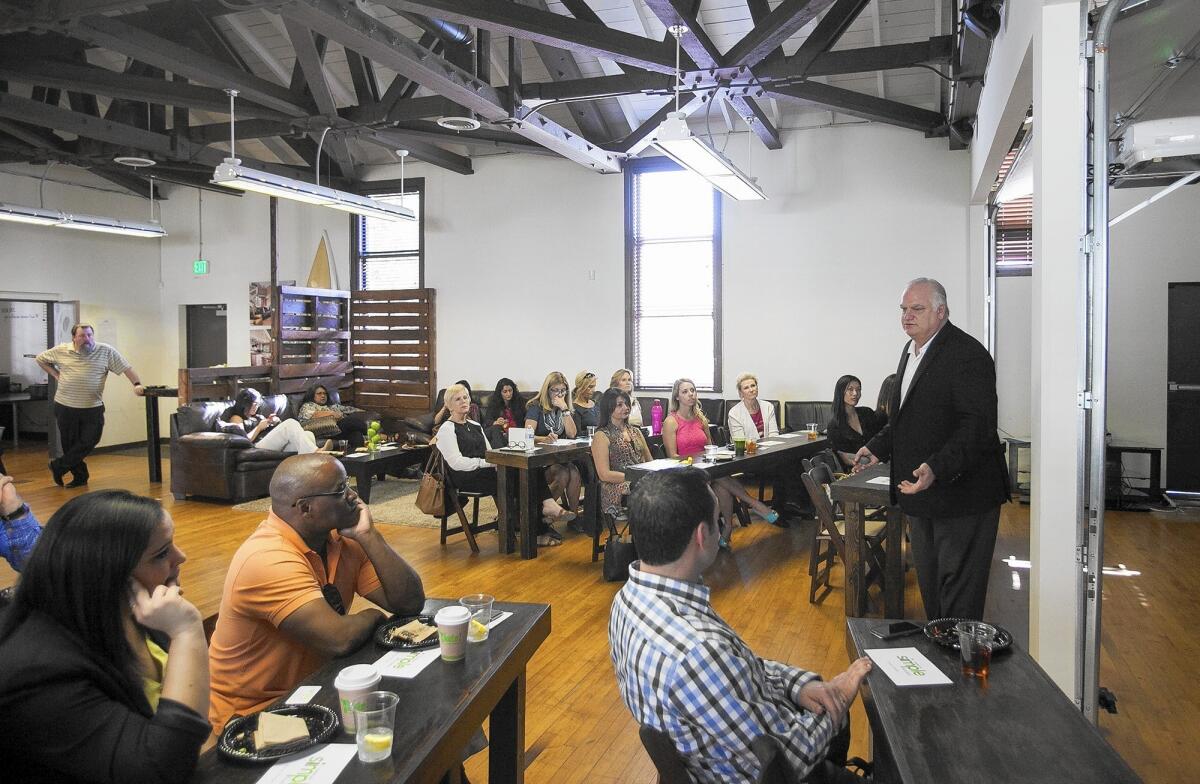Former NFL player Eric Hipple talks about student athletes’ mental health

Former NFL player Eric Hipple spoke to a full house Thursday at Simple Recovery, a chemical-dependency treatment center in Costa Mesa.
His talk homed in on a subject that some of the event’s guests said is often swept under the rug — mental trauma and illness as it relates to student athletes.
“One big stigma that surrounds depressive illness is this idea that something is wrong is me and that means I’m weak,” said Hipple, a quarterback for the Detroit Lions during much of the 1980s. “That’s especially tough for the youth that plays sports because when you play a sport, you’re expected to be tough.”
Hipple knew the stigma all too well.
Almost 16 years ago, his son, Jeff Hipple, a 15-year-old basketball player and captain of his school’s freshman team, took his own life.
Before losing his only son, Hipple noticed Jeff was spending a lot of time alone and constantly told his father that he “just didn’t feel good.”
The teen was traveling between his mother’s home in Utah and his father’s home in Michigan. His parents divorcing.
The concerned father took him to a doctor. Jeff had some bloodwork done, and when his results came back, the doctor said his tests looked fine, and he could just keep going to school.
Jeff committed suicide in April 2000. He is buried in Logan, Utah. The elder Hipple played football at Utah State.
“When Jeff died, that was the point where I wanted some answers,” Hipple said. “I wanted to know what happened and why it happened.”
He began to go to the University of Michigan’s Depression Center to seek answers.

After becoming well-versed on the symptoms of depression and how to address mental illness, Hipple became the center’s outreach coordinator. He has spent the last several years traveling to different school sites to speak to students about suicide prevention.
The former pro athlete first connected with Simple Recovery through an NFL social worker who assists players in need and directs them to the proper health services.
Over 25 attendees came to Simple Recovery’s Schoolhouse for Hipple’s presentation.
His talk covered the effects of stress, trauma, illness and injury on student athletes.
“You get beat up, and you can start losing seasons, which is tough,” he said. “And with men, men are ‘fix it’ types who want to fix problems on their own. People don’t come forward because they’re afraid of looking weak.”
The Costa Mesa treatment center opened the free event to the public and invited professionals from intervention and detox centers, mostly within Orange County.
Susan Mehta, an intervention specialist based in San Juan Capistrano, was interested in learning about brain trauma, as told by a former athlete.
“With football, people knew for years that it could cause concussions but [the topic] was put on the backburner,” Mehta said. “But the more people start to recognize these things, the more people will talk about it.”
Hipple’s talk touched on identifying the different symptoms of depression, how to manage stress and methods for suicide-prevention.
In addition to providing free educational seminars, Simple Recovery offers programs to teach families about addiction, boundary setting skills and effective communication.
